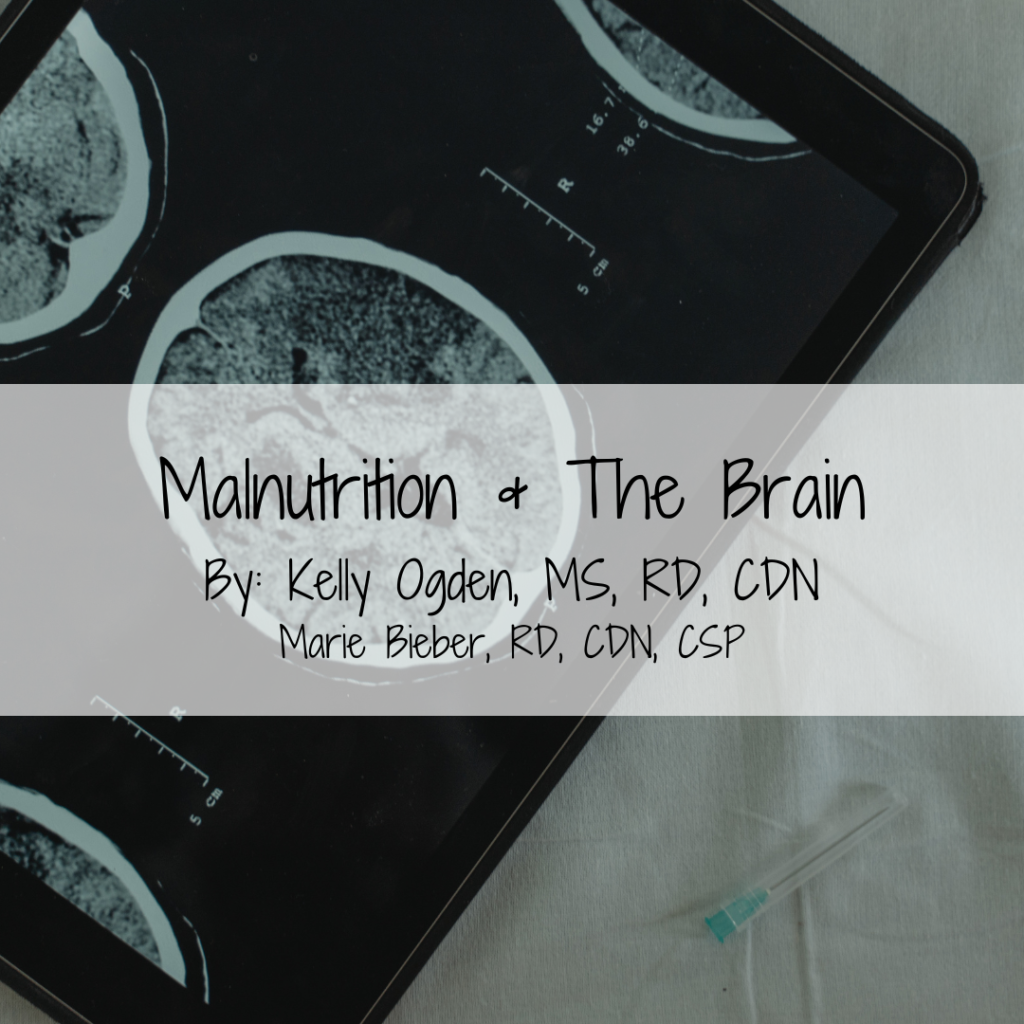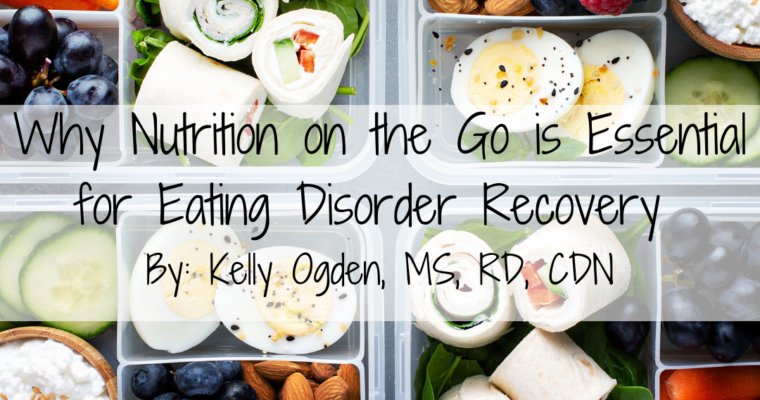
When Marie’s time working at a residential treatment facility for eating disorders, we had a resident that reported significant brain fog and constipation. She shared that she had eliminated a number of food items from her diet. Each time she eliminated something she felt better initially and after a month or so she continued to get worse which would lead to the next elimination or added supplement. When she arrived in our care we helped her do the opposite- reintroduce all of the things she had eliminated, eat on a regular schedule, and nourish her body with a wide variety of foods. She was very scared to do this and each week when meeting with the dietitian she would ask many questions about how a food may help or harm her body and expressed a strong desire to not reintroduce foods. Ultimately she made the brave decision to continue to follow her meal plan and week after week she noticed improvements. No longer was she dealing with chronic constipation. No longer was she feeling brain fog. She said she felt like a cloud had lifted. She felt so energized and ready to go back home to keep up with her two young children! This woman exemplified what we will discuss in this article- when the brain is undernourished it will not allow you to feel your best- mentally or physically. The malnourished brain is an anxious brain, always on edge looking for the next source of food. Often thinking about or dreaming about food. Often talking about or looking for food even if not to consume it. With restriction, the poor physical feelings someone experiences and the increase in anxiety can happen very slowly so that you may not notice it from day to day. However, after a long enough period of time there is a significant difference in how you could feel if you were better nourished. It’s often not until someone becomes better nourished that they can realize how difficult it was to think and to live without adequate nutrition.
The brain is one of the most complex and powerful organs in the human body. Weighing approximately three pounds, it regulates our thoughts, movements, breathing and our senses. This happens 24 hours, 7 days per week without us even having to think about it! Unfortunately, many unfavorable changes to the brain, and therefore someone’s mental health, can occur when food intake is restricted. Most diets, styles of eating which require removing food types or groups, and suggestions from well meaning practitioners, all focus on what needs to be removed from the diet. As a result of these restrictions, most prescribe too little food which can then result in the body experiencing a state of semi-starvation. This state of semi-starvation causes complex changes in the brain which perpetuate eating disorders, not to mention the inability to think clearly and process thoughts and emotions.
Neurons
Our brains are able to process about 70,000 thoughts daily. It is able to accomplish all of these things due to the body’s chemical messengers called neurotransmitters. Neurotransmitters are directly affected by the quality of our nutrition and the food that we do or do not consume. Examples of neurotransmitters that are negatively impacted from restricted nutritional intake include:
- Serotonin: responsible for controlling one’s mood and happiness
- Dopamine: responsible for energy and focus
- Norepinephrine: helps with energy and alertness
- Acetylcholine: aids in learning and memory
- Melatonin which aids in sleep
- Gamma-aminobutyric acid (GABA) which helps calm anxiety
The body’s neurons (which are responsible for sending and receiving neurotransmitters) require an insulating, protective layer of lipids (fats) to be able to conduct electricity. This means fats are a vital part of the brain sending messages within itself as well as to other parts of the body. Inadequate fat intake can damage this protective layer, causing numbness and tingling in hands, feet, and other extremities. Not consuming enough fat in the diet is also linked to an increase in depression and irritability. Additionally, the brain is actually around 60% fat which stresses the importance of adequate consumption of this nutrient! Inadequate consumption of fat can negatively impact the brain structure as a whole which is something to be avoided.
Brain Structure
Severely restricting the amount of food eaten can be a very dangerous habit. Cerebral atrophy (photo reference below), also referred to as a ‘starved brain’, is a common complication of eating disorders and describes a loss of brain mass due to starvation. Reductions in brain size are particularly concerning, as they may imply the destruction of brain cells or the connections between them. When starved of food, the body responds by reducing the rate at which it burns energy; this is known as the metabolic rate. The human brain operates at a very high metabolic rate, using a considerable portion of the body’s total energy and nutrient intake. For an average adult at rest, the brain uses about 20% of the fuel we consume daily. The brain doesn’t have a reserve of energy to store away for when it needs it, unlike muscles, which can store excess carbohydrates. The brain needs to be constantly supplied with oxygen and energy throughout the days in order to run properly. Without proper nutrition to fuel our brain activity and function, our brain is left vulnerable to degradation.
Another study looked to observe structural brain abnormalities in individuals with malnutrition from anorexia nervosa (AN). The study compares the brains of partially weight restored individuals and acutely underweight individuals vs. healthy controls. The researchers analyzed MRI brain scans of 685 women with anorexia and 963 healthy weight women from 22 places across the world. The women were aged between 15 and 27 years old and most had been battling with anorexia for an average five years. These brain maps show (in warmer colors) brain regions with gray matter deficits in anorexia. The results suggest that AN is associated with global gray matter reductions (and no increases) and that these reductions might be highly state dependent, i.e., related to lower body weight. The grey matter of our brain is involved in muscle control, sensory perception, memory, speech, decision-making, and self control. It’s no wonder so many folks we work with have such a hard time deciding what to eat for lunch! Deficits are less strong in partially-weight restored (upper images) than those in the acute phase (lower images) suggesting the importance and benefits of early interventions. When interviewed regarding the study, Paul M. Thompson, PhD, associate director of the Stevens INI stated: “The international scale of this work is extraordinary. Because scientists from twenty-two centers worldwide pooled their brain scans together, we were able to create the most detailed picture to date of how anorexia affects the brain, says Thompson. “The brain change anorexia were more severe than in any other psychiatric condition we have studied. Effects of treatments and interventions can now be evaluated, using these new brain maps as a reference.”
(Photo credit: ENIGMA Anorexia Working Group)
Mental and Physical Health
In addition to reducing the body’s metabolic rate in response to starvation, the brain also also adapts by becoming vigilant and anxious. Anxiety from lack of nutrition can cause the individual to feel like they are on high alert at all times. This makes individuals become more rigid, resistant to change and often fearful. Many individuals who struggle with eating disorders often complain about the inability to fall and stay asleep throughout the night. This happens because the brain is in fight or flight mode and is telling the body to remain alert and active in case a threat approaches.
The Minnesota Starvation Study was conducted in the 1940s to observe the effects of semi-starvation on health. 36 males were provided about half of their caloric needs for 6 months and were monitored for a variety of physiological, biochemical and psychosocial changes. During the semi-starvation and the rehabilitative phases of the study, participants were recorded developing new anxiety and depressive symptoms not present at the beginning of the process. Some participants endorsed becoming more sensitive and argumentative with others. This study helped to confirm how inadequate food intake has an overwhelmingly strong impact on cognition, emotion, and
behavior. This experiment further demonstrated that a person does not have to be underweight to display symptoms of starvation, rather, can be experienced by a person with any significant calorie deficit, in a body of any size. Additionally, these individuals did not have eating disorders at the start of the study though many reported engaging in disordered eating behaviors during the study and following its completion. This demonstrates that food restriction alone, even in the absence of an eating disorder, has the potential to create negative disturbances in one’s relationship with food.
Research has found that starvation has widespread and profound effects on mood and cognitive functioning. If starvation occurs during childhood and adolescent years it can lead to lack of weight gain and height stunting as well as change the relative organ size of the heart, kidneys and muscles. Malnutrition during younger years may also have negative effects on cognitive ability, social skills and educational attainment. Adults too may experience change in relative organ size as well as demineralized bones putting them at a higher risk for osteopenia and osteoporosis and therefore bone breaks and falls.
Rewiring the Brain
Researchers suggest that an ongoing restrictive eating disorder can revamp the brain’s reward circuitry. Dopamine (a chemical released by the brain that makes you feel good), is normally released due to a reward such as eating an enjoyable meal, doing an activity you enjoy. This good feeling you receive from the activity is a reward for your body and encourages you to do this behavior again. In ongoing restrictive eating this can change and dopamine is instead released by a punishment, like skipping a snack. Individuals who consistently do not consume adequate nutrition may feel rewarded and happy when they do things that harm their bodies including:
- Reading ingredient labels and finding hidden fat calories
- Exercising excessively
- Pushing food around the plate instead of eating it
- Dropping to an unhealthy weight
This rewiring process can be reversed with adequate nutrition and resolution of disordered eating behaviors. Dopamine is an important neurotransmitter and is involved in a number of other things like blood flow, digestion, heart and kidney function, mood, emotions, pain processing, sleep, and stress response. As a result, we really want it to be released at the right time and for the right things!
Brain changes in restrictive eating are progressive and therefore early treatment is critical. The brain is an incredible organ that can regenerate with nutrition. The sooner interventions are started to stop harmful eating habits, the less damage will be done to brain cells. Recovery from an eating disorder is a process that requires a team of professionals and understanding from support systems. At Pearls of Nutrition, we are here to help you have a nourished brain!
References:
Altomare, R., Damiano, G., Palumbo, V. D., Buscemi, S., Spinelli, G., Cacciabaudo, F., … Monte, L. (2017). Feeding the brain : the importance of nutrients for brain functions and health, 19(15), 243–247. https://doi.org/10.23751/pn.v19i3.4821
Brockmeyer, T., Holtforth, M. G., Bents, H., Kämmerer, A., Herzog, W., & Friederich, H. C. (2012). Starvation and emotion regulation in anorexia nervosa. Comprehensive Psychiatry, 53(5), 496–501. https://doi.org/10.1016/j.comppsych.2011.09.003
Eckert, E. D., Gottesman, I. I., Swigart, S. E., & Casper, R. C. (2018). A 57-Year Follow-Up Investigation and Review of the Minnesota Study on Human Starvation and its Relevance to Eating Disorders, 2(3), 1–19.
Gaudiani, J. L. (2019). Sick enough: A guide to the medical complications of eating disorders. Routledge.
Keys, A., Brozek, J., Henschel, A., Mickelsen, O., & Taylor, H. L. (1950). (1950). The Biology of Human Starvation. The Biology of Human Starvation (2 Vols. (Vol. 2). Minneapolis; MN: University of Minnesota Press.
Sungura, R., Onyambu, C., Mpolya, E., Sauli, E., & Vianney, J.-M. (2021). The extended scope of neuroimaging and prospects in brain atrophy mitigation: A systematic review. Interdisciplinary Neurosurgery, 23, 100875. https://doi.org/10.1016/j.inat.2020.100875
Walton, E., Bernardoni, F., Batury, V.-L., Bahnsen, K., & Lariviere, S. (2022). Brain Structure in Acutely Underweight and Partially Weight-Restored Individuals With Anorexia Nervosa: A Coordinated Analysis by the ENIGMA Eating Disorders Working Group. Biological Psychiatry, 92(9), 730–738.


